What Age Should a Child Get a Phone? A Parent’s Guide
What age is appropriate for a child to have a cell phone? This question has more than one answer. Owing to the present-day scenario, some parents would want their child to have a cell phone as early as possible for safety reasons. But for most Indian parents, the answer would be, “as long as the child can do without.” Nobody really knows the ‘right’ age or time for a child to have a cell phone. How old should your kid be to have a phone? The decision varies based on maturity, necessity, and family values. Therefore, before getting into that, you must ask yourself a few questions as a parent. Once you have answers to these questions, you will know whether your child is ready to have a cell phone at her age. Every family must weigh the pros and cons before making this important decision.
When Should Kids Get a Phone?
There’s no one-size-fits-all answer, but many experts suggest ages 12–14 as a reasonable starting point, depending on the child’s maturity, responsibility, and necessity (1). Younger kids may only need a basic phone for emergencies, while teens might handle smartphones with clear rules.
How Do You Know If Your Child Is Ready/Mature Enough For a Cell Phone?
No parent has an answer to this question, but some parents would like their child to have one only when they are of the appropriate age. However, it is important to understand that times have changed, and the world is not as safe for children as it used to be. After all, the main purpose of the cell phone is to keep tabs on your child’s whereabouts. How do you know that your child is actually ‘ready’ or mature enough to handle having a cell phone? After all, it is not just an instrument you use to communicate, and having it means understanding its purpose and how to use it responsibly.
Advantages of Giving Kids a Cell Phone
Deciding when to give your child a phone can be challenging, but there are clear benefits to providing one at the right age. From safety to skill development, a cell phone can be a valuable tool when used responsibly (2).
1. Safety & Emergency Communication
A phone allows kids to contact parents instantly in emergencies, share their location, and call for help if needed, giving both children and parents peace of mind.
2. Improved Parent-Child Coordination
With a phone, parents can easily check-in, coordinate pickups, and adjust schedules in real time, making daily logistics smoother and reducing miscommunication.
3. Educational & Learning Opportunities
Smartphones provide access to educational apps, online resources, and research tools, helping kids with schoolwork and fostering independent learning.
4. Social Connection & Responsibility
Having a phone teaches kids digital etiquette, time management, and responsible usage while allowing them to stay connected with friends and family.
5. Development of Tech Skills
Early exposure to technology helps children develop digital literacy, problem-solving abilities, and familiarity with tools they’ll need in an increasingly tech-driven world.
Disadvantages of Phones for Kids
While smartphones offer benefits, they also come with risks that parents should consider. Excessive or unmonitored phone use can negatively impact a child’s health, development, and social skills (2).
1. Screen Addiction & Reduced Physical Activity
Excessive screen time can lead to phone addiction, reducing time for outdoor play, exercise, and real-world interactions, which are crucial for physical and mental well-being.
2. Exposure to Inappropriate Content
Kids may accidentally or intentionally access violent, sexual, or otherwise harmful content online, which can affect their emotional and psychological development.
3. Cyberbullying & Online Predators
Social media and messaging apps expose children to cyberbullying, harassment, and even grooming by strangers, leading to anxiety, depression, or unsafe situations.
4. Sleep Disruption & Mental Health Issues
Late-night phone use disrupts sleep patterns due to blue light exposure, while social media pressure can contribute to stress, low self-esteem, and anxiety.
5. Decline in Academic Performance
Distractions from games, social media, and constant notifications can reduce focus, leading to poor study habits and lower grades.
Things to Keep in Mind Before Buying a Smartphone for Your Child
Every parent would want to buy what is best for their child, but should you give her a smartphone when a regular cell phone can serve the purpose?
Before handing over a brand new smartphone to your child, consider asking yourself these questions (3).
1. Safety Reasons
Do you need to be in touch with your child since she has no one to accompany her to the school or her various co-curricular activity classes? If the answer is a “yes”, then you may have to get one for her for safety reasons.
2. Purpose
Is an ordinary phone not enough to serve the purpose? If you want her to keep a mobile just for calling and informing purposes, then just an ordinary phone is good enough. However, if she requires one for other reasons like using social media or browsing the net etc., then a low-tech phone will not suffice.
3. Caring for Things
Does your child care about her things, or is she careless and keeps on losing things? If you feel that your child is too careless with her things and loses things on and off, then having her ‘make do’ with an ordinary phone will be a wise move.
4. Responsibility
Will your child use the mobile responsibly and not keep indulging in it even during school hours and study time? Before giving a cell phone to her, make sure you read out the rules to her. You should make it clear that being on the phone at all times will not be allowed, and she may even have to give away her phone as a punishment.
5. Concern for Others
Will your child be responsible enough to use a cell phone only for communication purposes and not to disturb or distract others? Tell your child that calling people and disturbing them at odd hours is not acceptable.
6. Internet Safety
Will she be able to distinguish between the right and the wrong content on the internet? Now, this could be tricky. Your child may not be at the age to understand the difference between right and wrong content. However, you have to sit her down and tell her the difference and what she is and is not allowed to view.
7. Economic Viability
Will it be economically viable for you to get a smartphone for your child? After all, the economics does not end with buying the phone. After you hand over the smartphone, inform your child about the monthly expenses that come with it. You may give her a fixed budget in which she would have to make do with her phone bills. In case she exceeds the limit, you could deduct it from her pocket money.
How Can You Keep Your Child Safe on Mobile Phones?
By now, all of us know that there is no right age for a cell phone for your child. However, through surveys, it has been estimated that the average age to get a smartphone for a child is around 10 – 12 years. Given the present scenario which is unsafe for children, a cell phone becomes necessary so that we are aware of the whereabouts of our children. However, mobile phones can do more harm to our children than good if parents are not alert and cautious. Listed below are 6 tips to keep your child safe on mobile phones.
1. No Texting
Texting or talking over the phone while driving (in case of children are 18+ years) or even cycling, is dangerous. Therefore, let your child know the repercussions of doing so can be fatal. Instead, ask her to stop driving or cycling when she has to text or take a call. Just a 2 minute stop will not make any difference after all.
2. Limited Phone Time
It is essential to restrict phone time. Before you give your child a phone, tell her that she is strictly prohibited from using or keeping her phone with her at all times. For example, during family time, dinner time or if you are having guests over, she should refrain from using her phone.
3. Cyber Bullying
You must tell your child that if anyone tries to bully or harass her online or through text messages, it is not ok. In such a case, she must immediately inform you. Also, tell her that doing the same to others can cause harm to the other person and her as well and that the repercussions could be bad on both sides.
4. Sharing Personal Information
Nowadays, it is common for everyone to be on social media, more so for children. However, do warn them against sharing personal information like her address, phone number, personal photos, etc., with strangers.
5. Online Shopping
You should also prohibit your child from buying things online. She may buy game apps or additional content and features, which can be a pure waste of money.
6. Customized Tariff Plans
Apart from the ones mentioned above, you can (with the help of service providers) purchase plans which will make it safer for your child and also not weigh heavy on your pocket.
Alternatives to Smartphones for Kids
Parents looking for safer ways to keep kids connected without the risks of smartphones have several good options. These alternatives provide necessary communication while minimizing screen time and online dangers.
- Basic Feature Phones: Simple call-and-text devices offer reliable communication without internet access or social media distractions.
- GPS Smartwatches for Kids: Wearables enable calls, location tracking, and emergency alerts while excluding unrestricted internet access.
- Parent-Controlled Tablets: These devices include robust parental controls, educational apps, and preset time limits for safer screen use.
- Two-Way Radios/Walkie-Talkies: Ideal for local communication, these let kids stay in touch during outdoor activities without internet risks.
- MP3 Players (Without Internet): Audio-only players provide music and podcasts without screens or online exposure.
- E-Readers for Book Lovers: Dedicated e-readers promote reading with adjustable parental controls and no social media.
- Family Hub Devices: These tools allow voice-controlled calls and messaging under full parental supervision.
A Few Questions Parents Should Ask Themselves Related to Cell Phones
Here are a few questions when considering the appropriate age for a cell phone for kids:
- Why is a cell phone essential for my child?
- Is it just a desire or a requirement?
- Is my child mature and responsible enough to have a cell phone?
FAQs
1. Should a child’s phone depend on their school’s tech policy?
Some schools require devices for assignments, while others ban phones entirely. If a school encourages tech use, parents may need to provide one earlier—but with strict controls.
2. Could delaying giving a phone improve emotional resilience?
Yes, studies show kids who get phones later (after age 12-13) often develop better coping skills and emotional resilience since they learn to handle boredom and social challenges without digital distractions. However, this depends on the child’s environment and social needs.
3. Is there an ideal time of year to give a child their first phone?
Summer break is often best, as it gives kids time to adjust to responsible usage before school demands add pressure.
The best way to make cell phones safe for your child is through parental guidance and alertness. Parents should regularly monitor their child’s phone usage and content. Limiting screen time should also be made mandatory, or else it can prove to be detrimental for the child.
References/Resources:
1. Cleveland Clinic – Is My Child Ready for a Smartphone?
2. Children’s Hospital Los Angeles – When Should I Let My Child Have a Phone?
3. Harvard Graduate School of Education – When to Give Your Child a Smartphone
Also Read:
Internet Safety for Kids
Reading Websites for Kids to Boost Learning
Parental Apps to Control Screen Time of Children
Harmful Effects of Using Mobile Phones on Children
Was This Article Helpful?
Parenting is a huge responsibility, for you as a caregiver, but also for us as a parenting content platform. We understand that and take our responsibility of creating credible content seriously. FirstCry Parenting articles are written and published only after extensive research using factually sound references to deliver quality content that is accurate, validated by experts, and completely reliable. To understand how we go about creating content that is credible, read our editorial policy here.






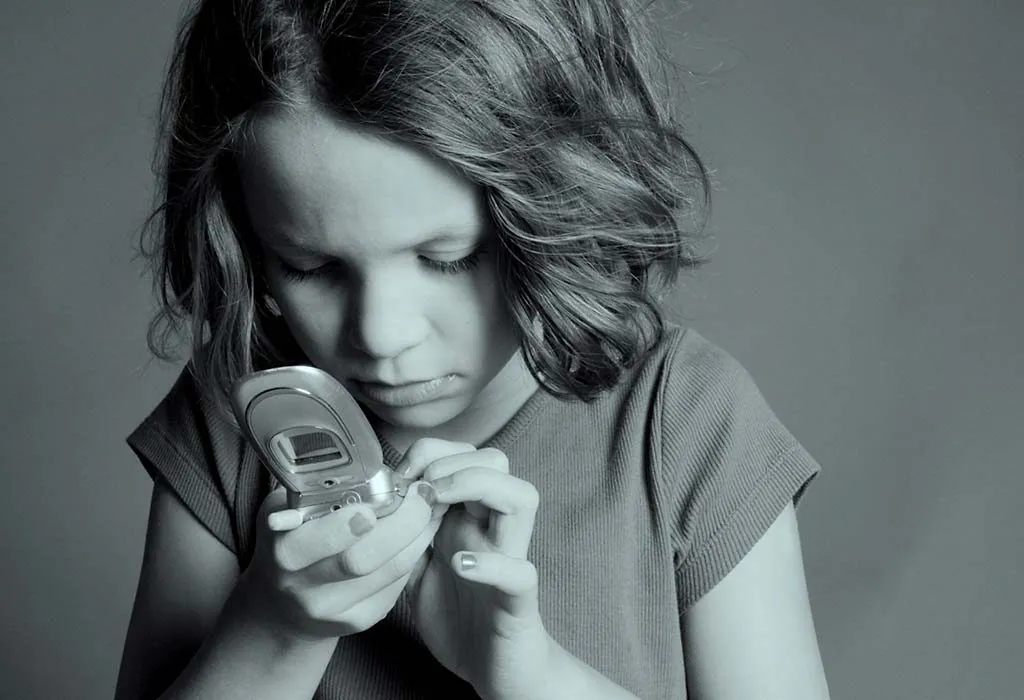


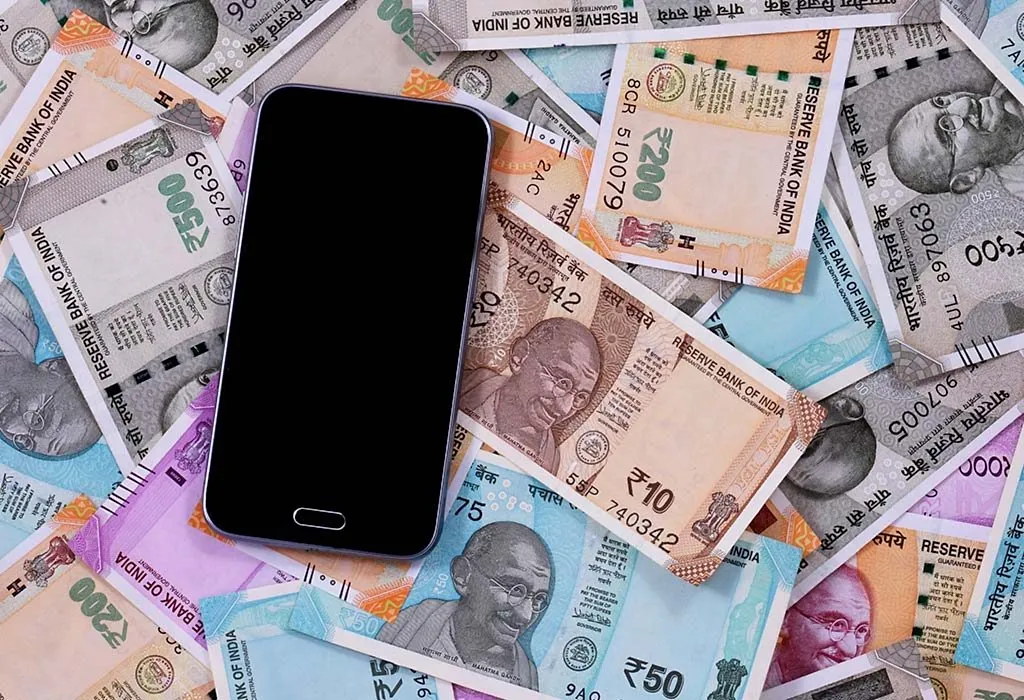

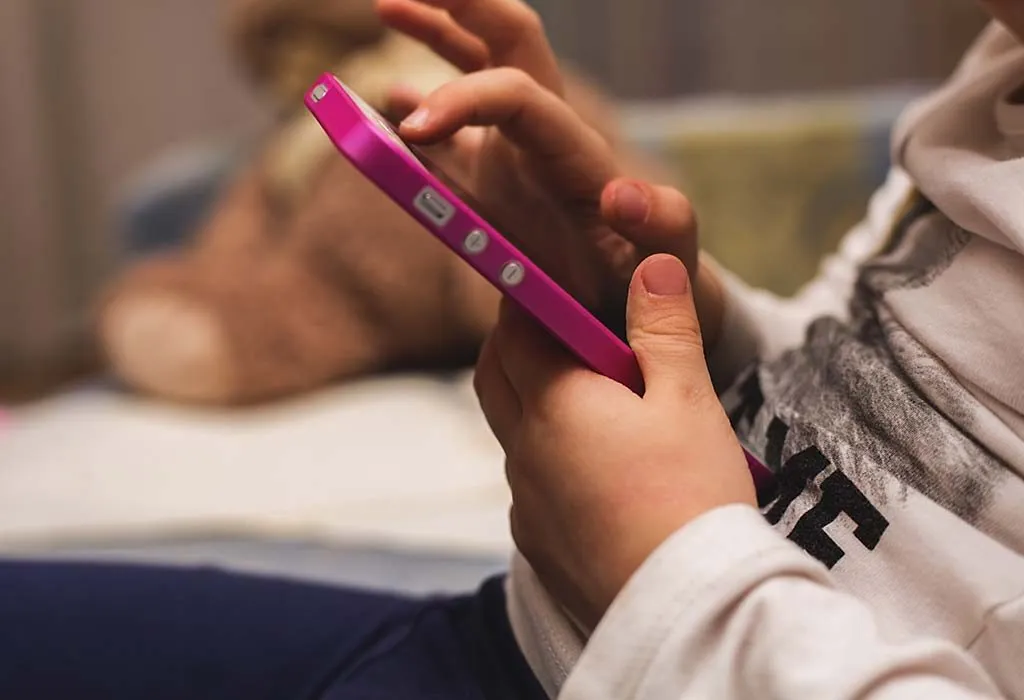


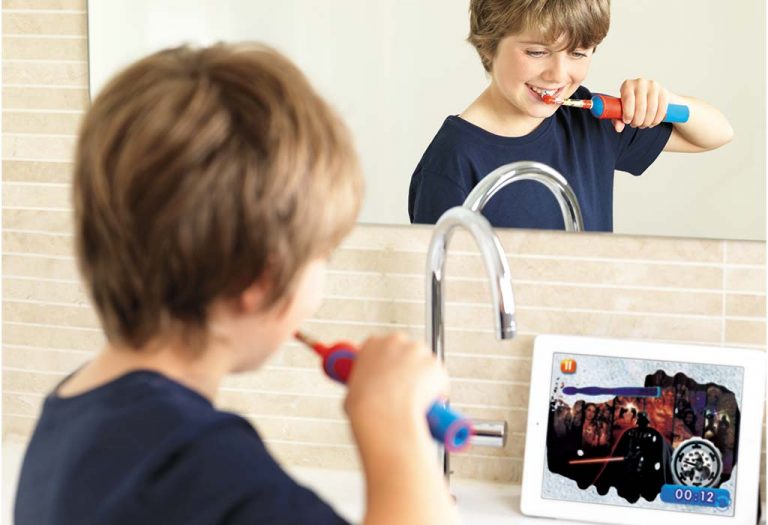

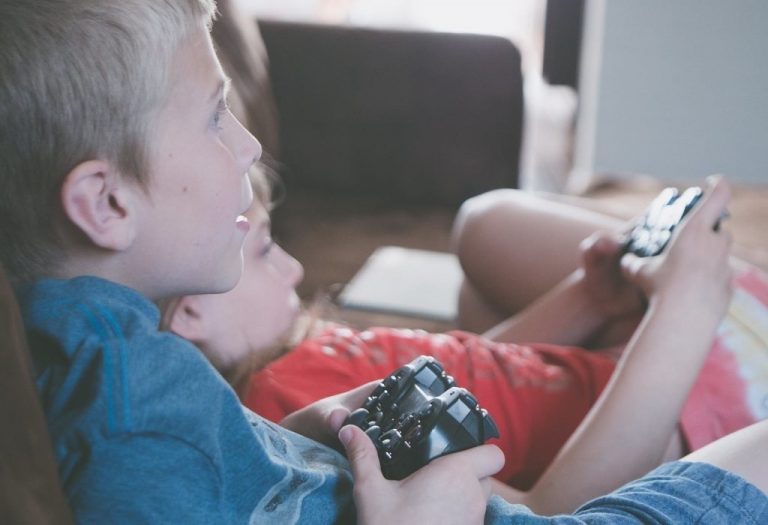


.svg)
















